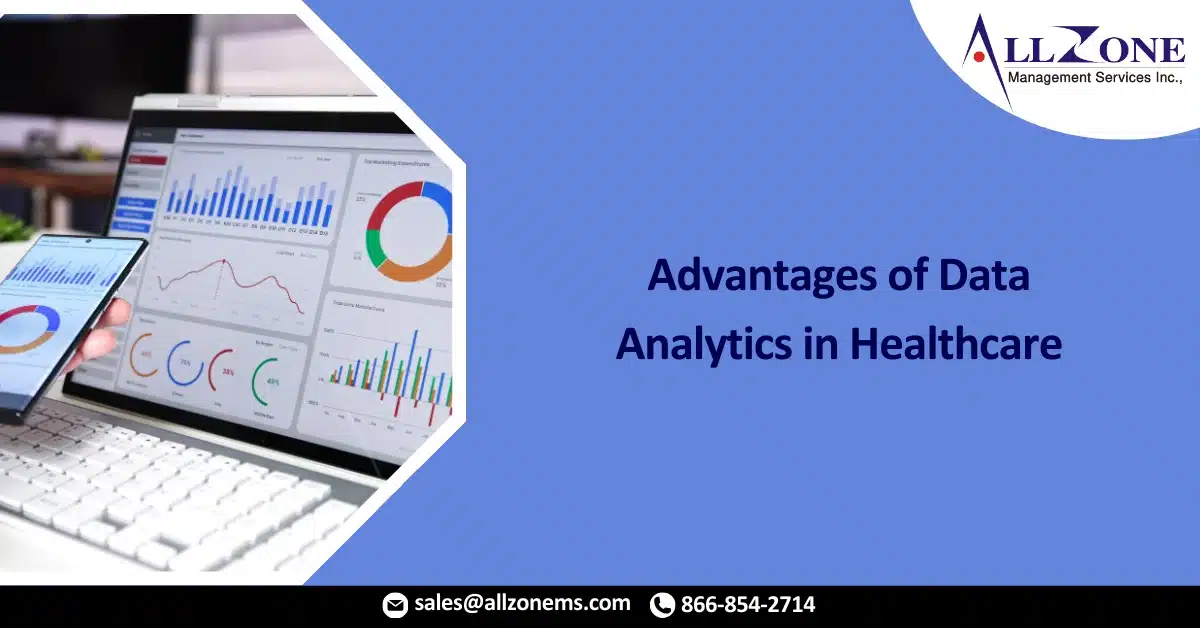With the healthcare sector generating vast volumes of data, leveraging data analytics can lead to improved patient outcomes, reduced costs, and enhanced operational efficiencies for Advantages of Data Analytics in Healthcare.
Data analytics encompasses the collection, management, and analysis of extensive data to identify patterns, insights, and trends, enabling more informed decision-making. In the healthcare sector, the abundance of data generated by electronic health records (EHRs), wearables, and other digital health tools has greatly amplified the utilization of data analytics. This powerful tool is employed to enhance patient outcomes, reduce costs, and optimize operational efficiencies in healthcare settings.
While the healthcare sector has only recently begun harnessing the potential of data analytics, it has consistently generated substantial amounts of data, encompassing medical images, research studies, patient records, clinical trials, and more. The application of data analytics in this domain brings forth numerous advantages and benefits.
Advantages of Data Analytics in Healthcare
1. Enhanced Patient Outcomes:
By leveraging data analytics, healthcare practitioners can develop personalized treatment plans tailored to an individual’s lifestyle, medical history, and genetics. This empowers doctors to deliver more targeted and effective interventions, resulting in improved patient outcomes.
2. Early Detection and Prevention:
Data analytics plays a pivotal role in identifying at-risk patients and predicting potential health issues before they manifest. This empowers healthcare professionals to administer early interventions, mitigating the need for costlier treatments in the future.
3. Enhanced Efficiency:
Through the analysis of data pertaining to resource utilization, patient flow, and staffing levels, healthcare professionals can streamline their processes for maximum efficiency. This leads to reduced wait times, improved resource allocation, and decreased costs.
4. Accelerates Research and Development:
Through the examination of data derived from research studies and clinical trials, medical professionals gain valuable insights into the effectiveness and safety of emerging treatments. This expedites the development of new therapies, leading to advancements in patient care and overall well-being.
Applications of Data Analytics in the Medical Sector
1. Clinical Decision Support:
Utilizing data analytics, healthcare professionals can benefit from evidence-based recommendations for patient care. This encompasses reminders for necessary vaccinations, alerts regarding potential drug interactions, guidance on various treatment options, and more. Such clinical decision support systems empower healthcare providers with valuable insights to enhance the quality and safety of patient care.
2. Predictive Analysis:
By analyzing a patient’s historical data, predictive analysis enables the anticipation of future outcomes. Within the medical sector, this methodology is employed to identify individuals at risk of developing specific conditions, forecast the probability of readmission, and ascertain staffing needs. Such predictive analysis empowers healthcare professionals with valuable insights to proactively address potential challenges and optimize patient care.
3. Precision Medicine:
Data analytics is employed to craft tailored treatment plans based on an individual’s lifestyle, medical history, and genetics. This approach encompasses the development of targeted therapies for cancer patients and the identification of the most effective medications for specific individuals. Precision medicine leverages data analytics to optimize patient care by delivering personalized and impactful interventions.
4. Population Health Management:
By analyzing data on patient populations, population health management aims to identify trends and implement targeted interventions. This includes identifying at-risk individuals for specific conditions and designing relevant prevention programs. Through the utilization of data analytics, population health management enables healthcare providers to proactively address the health needs of specific populations and promote overall well-being.

